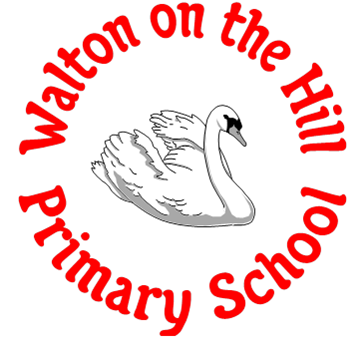English - Reading, Writing and Oracy
|
At Walton on the Hill Primary we want an English curriculum which inspires a love of reading. We love books and want all of our community to feel the same. Reading and particularly, reading for pleasure, is a keystone in our curriculum. Becoming a fluent reader is the foundation for future success and we are adamant that no child will be left behind in that respect. We build on strong foundations established in EYFS and KS1 and are very proud that, for the last two years, every child in our school has reached the expected standard in phonics by the end of Year 2. We also ensure the curriculum offers children the opportunity to become writers with writing tasks that build on their experiences or take inspiration from their wider learning or drama. We ensure children write for a range of purposes and audiences, while also ensuring the foundational elements of spelling, grammar, handwriting and vocabulary are delivered following a sequenced approach. Teachers have been trained to deliver a Talk for Writing approach. This approach brings a structured learning environment in which children are enabled to stretch their vocabulary, establish good sentence structure and use their imagination. This approach is continued into KS2, where the scaffolding is gradually taken away to increase independence. Stimulus for writing throughout the school is balanced and varied. As stated in the 2021 Ofsted report, "Reading is a high priority in the school". Following a recent in-house Action Research Project and CPD on Reading Fluency, guided reading lessons are used to model the reading of texts and increase fluency practice. The subsequent introduction of the FFT Reading Assessment Programme means pupils are assessed on their GPC accuracy, decoding accuracy and fluency levels. The school library is open every lunchtime, with the help of parent volunteers and Year 6 children, which has been a great addition to the school day. At this time, children can seek advice, get book recommendations, or simply read. The library has been improved in terms of layout and signposting. Recent purchases recognised the need to increase our selection of diverse literature, both in terms of culture/ethnicity and hi-lo dyslexia-friendly publications. Last year we were delighted that the percentage of children reaching the expected standard in reading improved from 90% in the previous year to 93% which is 20% higher than the national average. We were equally pleased that children achieving the higher standard improved from 31% to 46%. In Infants, we place our focus on making secure essential basic foundational skills are secure. We use monster phonics for our daily sessions so that all children have the necessary tools to become fluent readers; we also read to and with children as much as we can. We ensure there are daily opportunities for structured talk, storytelling, role play and discussion. Explicit teaching of vocabulary, especially through shared reading and topic work allows children to become more articulate. The early focus on oracy allows children to develop skills to verbalise before they write. |
For further detail on our English curriculum please look at some of the documentation attached below:
